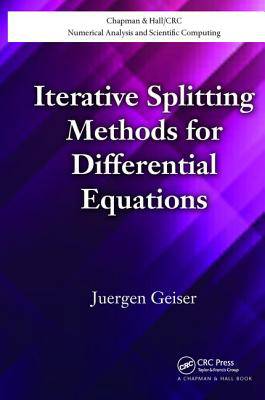
- Afhalen na 1 uur in een winkel met voorraad
- Gratis thuislevering in België vanaf € 30
- Ruim aanbod met 7 miljoen producten
- Afhalen na 1 uur in een winkel met voorraad
- Gratis thuislevering in België vanaf € 30
- Ruim aanbod met 7 miljoen producten
Omschrijving
Iterative Splitting Methods for Differential Equations explains how to solve evolution equations via novel iterative-based splitting methods that efficiently use computational and memory resources. It focuses on systems of parabolic and hyperbolic equations, including convection-diffusion-reaction equations, heat equations, and wave equations.
In the theoretical part of the book, the author discusses the main theorems and results of the stability and consistency analysis for ordinary differential equations. He then presents extensions of the iterative splitting methods to partial differential equations and spatial- and time-dependent differential equations.
The practical part of the text applies the methods to benchmark and real-life problems, such as waste disposal, elastics wave propagation, and complex flow phenomena. The book also examines the benefits of equation decomposition. It concludes with a discussion on several useful software packages, including r3t and FIDOS.
Covering a wide range of theoretical and practical issues in multiphysics and multiscale problems, this book explores the benefits of using iterative splitting schemes to solve physical problems. It illustrates how iterative operator splitting methods are excellent decomposition methods for obtaining higher-order accuracy.
Specificaties
Betrokkenen
- Auteur(s):
- Uitgeverij:
Inhoud
- Aantal bladzijden:
- 320
- Taal:
- Engels
- Reeks:
Eigenschappen
- Productcode (EAN):
- 9781138111905
- Verschijningsdatum:
- 31/05/2017
- Uitvoering:
- Paperback
- Formaat:
- Trade paperback (VS)
- Afmetingen:
- 156 mm x 233 mm
- Gewicht:
- 452 g

Alleen bij Standaard Boekhandel
Beoordelingen
We publiceren alleen reviews die voldoen aan de voorwaarden voor reviews. Bekijk onze voorwaarden voor reviews.











